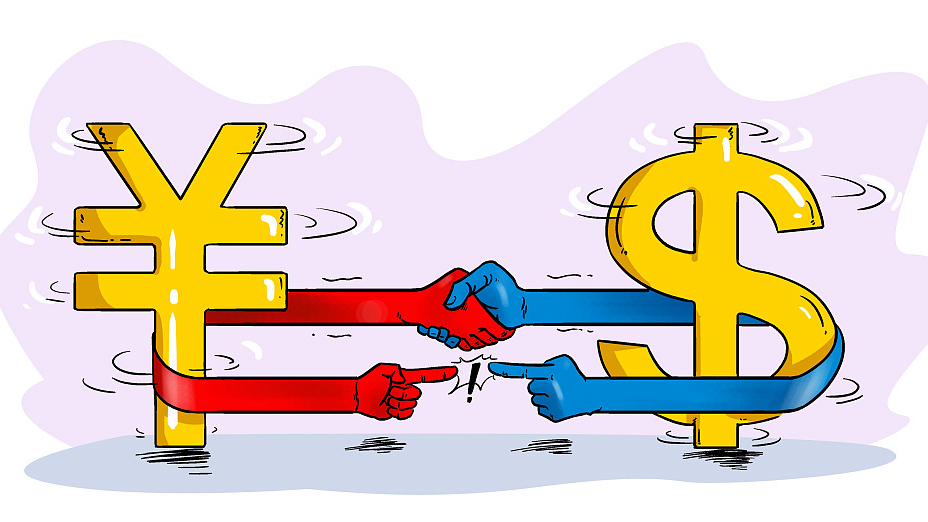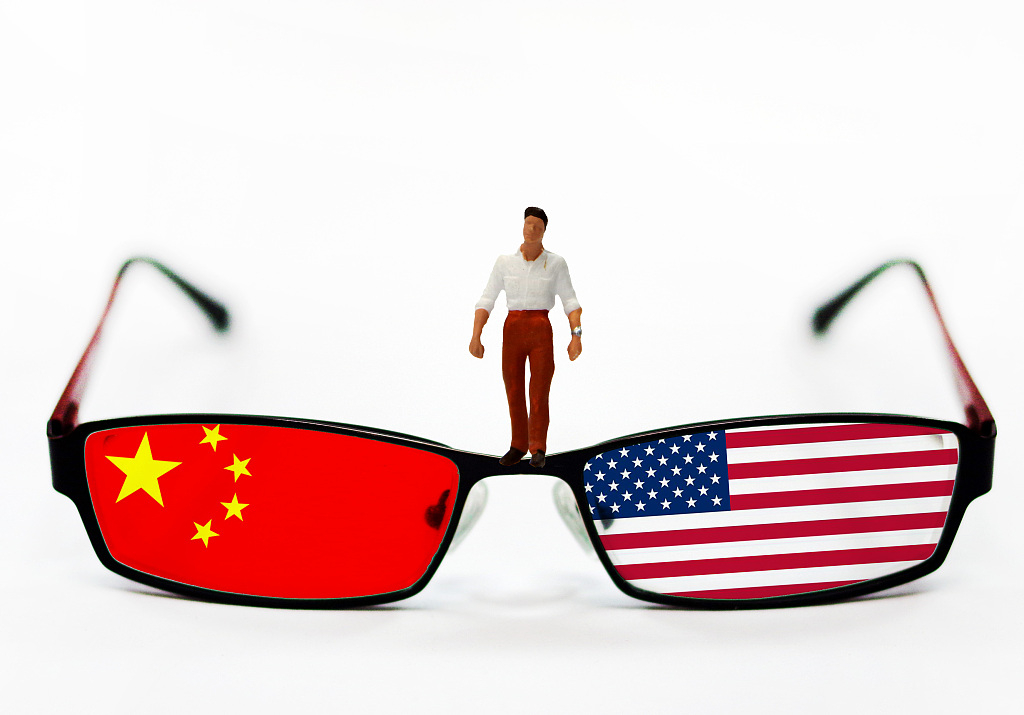

Editor's note: Chris Hawke is a graduate of the Columbia Graduate School of Journalism and a journalist who has reported for over two decades from Beijing, New York, the United Nations, Tokyo, Bangkok, Islamabad and Kabul for AP, UPI, and CBS. The article reflects the author's views, and not necessarily those of CGTN.
When my friends announced they were getting a divorce after 40 years of marriage, everyone rolled their eyes in disbelief. The couple had created so much together — a family, a circle of friends, retirement savings. There was too much at stake. This would surely blow over.
The couple promised the break-up would be friendly, but it ended with lawsuits, calls to the police and bankruptcy.
When the basis of trust and good faith that underlies a relationship collapses, there is nothing left to hold ties in place.
On Friday, U.S. President Donald Trump announced the U.S. is “divorcing” China, figuratively speaking.
We are witnessing this relationship, which has generated tremendous wealth on both sides of the Pacific, collapse.
This perhaps became inevitable when both sides started talking about a trade deal in terms of national pride, victory and defeat. The focus shifted from concrete grievances with technocratic solutions to perceptions of control and power. The trade war became a proxy for other issues. Will Trump stand strong to defend the workers of America? Can President Xi Jinping stand up against bullying by a foreign nation that wants to stop China’s rise?
Before Trump “ordered” companies to “start looking for an alternative to China,” they were already shifting production because of economic uncertainty around the tariffs.
Trump and the China hawks in his circle are getting their way — decoupling the two economies. This appears to have been Trump’s goal, to the extent he has one, not reaching a trade deal.
What happens next?
For the last 40 years, the depth and complexity of the U.S.-China relationship, anchored by mutually beneficial financial ties, restrained both nations from taking more aggressive stances on issues that could otherwise lead to war, ranging from the South China Sea to Taiwan. Without the ballast of a healthy trade relationship, this restraint will vanish.
A hint of things to come can be seen with the U.S. approach to the Hong Kong situation. At first, Trump made clear he considered Hong Kong to be a Chinese domestic problem that he would not interfere with. Recently, he has started linking a peaceful outcome to the tensions to the trade negotiations.
Now that the economic relationship is collapsing, it is easy to imagine Trump or another president deeply inserting himself or herself into the issue, with potentially explosive results. We can now expect to see an increase of destabilizing weapon sales to Taiwan, and dangerous standoffs in the South China Sea.

VCG Photo
Hawks in Trump’s circle pushed hard for decoupling, but China has also been preparing for this situation, particularly after the ZTE ban last year. China already has its own internet economy, controlled by heavyweights such as Alibaba, Tencent and Baidu. Soon it will be making its own jumbo jets, high-end microchips, and self-driving electric cars.
Just because the U.S. is now decoupling from China, does not mean other nations will want to follow. Japan, the Republic of Korea and Europe have not been willing to follow the U.S. lead in rejecting buying infrastructure from Huawei, let alone cutting trade ties. These countries could all step in and sell high tech equipment to China — until they start buying it from China.
The economies of both China and the U.S. are being hurt as trade between the two nations slows down, and potentially grinds to a halt. But China is simultaneously continuing its ambitious Belt and Road trade and infrastructure project, expanding its potential global market. As the door to the U.S. starts to close, the door to the rest of the world is opening.
In contrast, the U.S. is involved with goodwill-destroying trade wars with almost all of its most important allies.
Perhaps a comprehensive U.S.-China trade deal was always a “unicorn,” a distraction while both sides prepare for a now-inevitable decoupling. A shift in U.S. administrations is unlikely to help — many of the Democratic presidential candidates are talking as tough about China as Trump does.
The divorce between my friends ended up leaving both of them financially poorer, with diminished social circles, and reduced prospects for dealing with problems the future may bring. It was a bad idea, but with trust destroyed, there was no turning back, despite regrets.
I hope the U.S. and China can reflect on how much wealth and political stability their close ties have created for themselves and the global economy, and try to salvage a trade deal and rebuild mutual trust. I also hope I can ride on a unicorn in my dreams tonight. Who knows, it may happen.
The stakes are very high, and perhaps powerful financial interests in the U.S. that stand to lose a lot can walk Trump back from the brink. If the two great economies decouple, life will go on, only poorer and more dangerous than before.
(If you want to contribute and have specific expertise, please contact us at opinions@cgtn.com.)

Copyright © 2018 CGTN. Beijing ICP prepared NO.16065310-3
Copyright © 2018 CGTN. Beijing ICP prepared NO.16065310-3